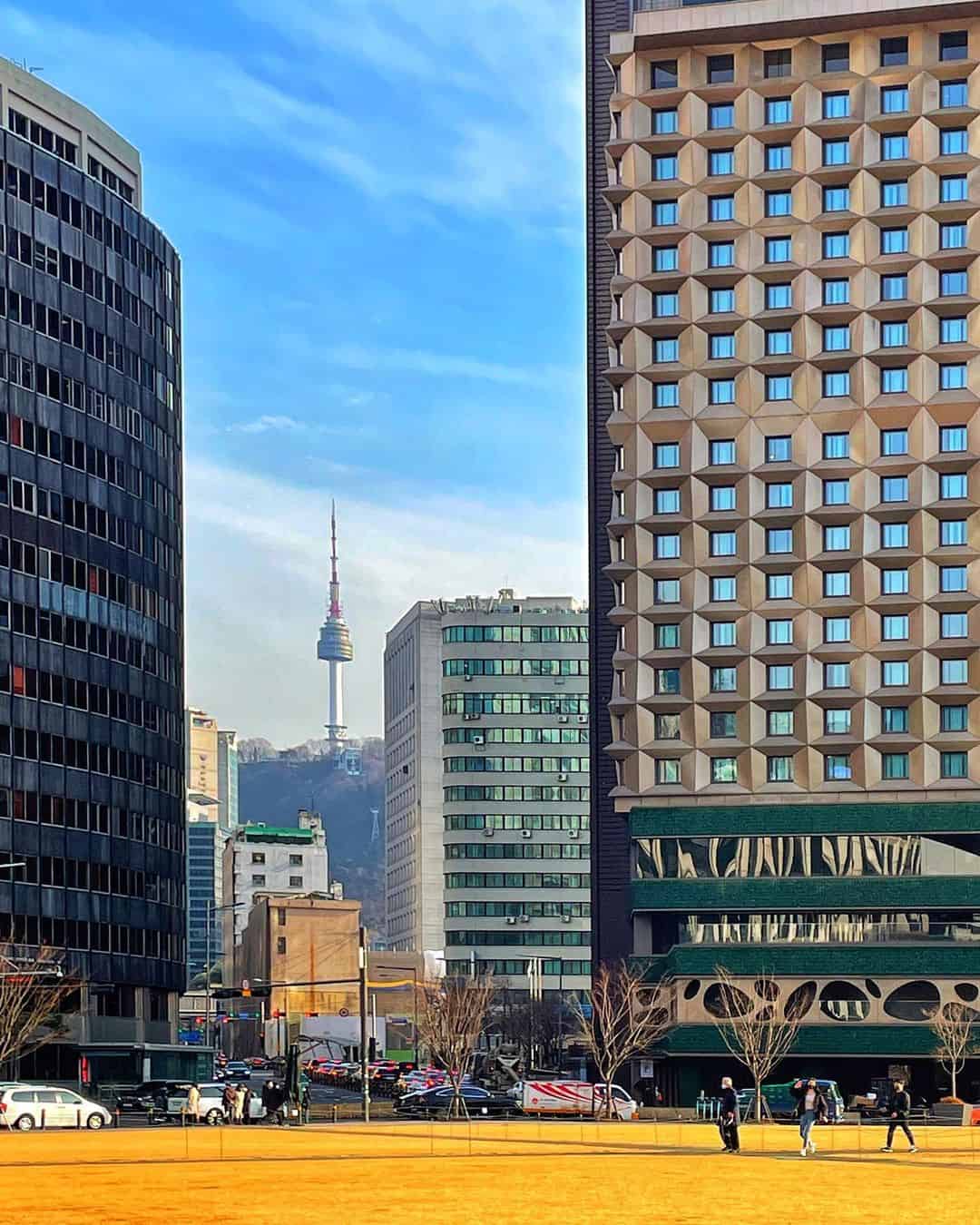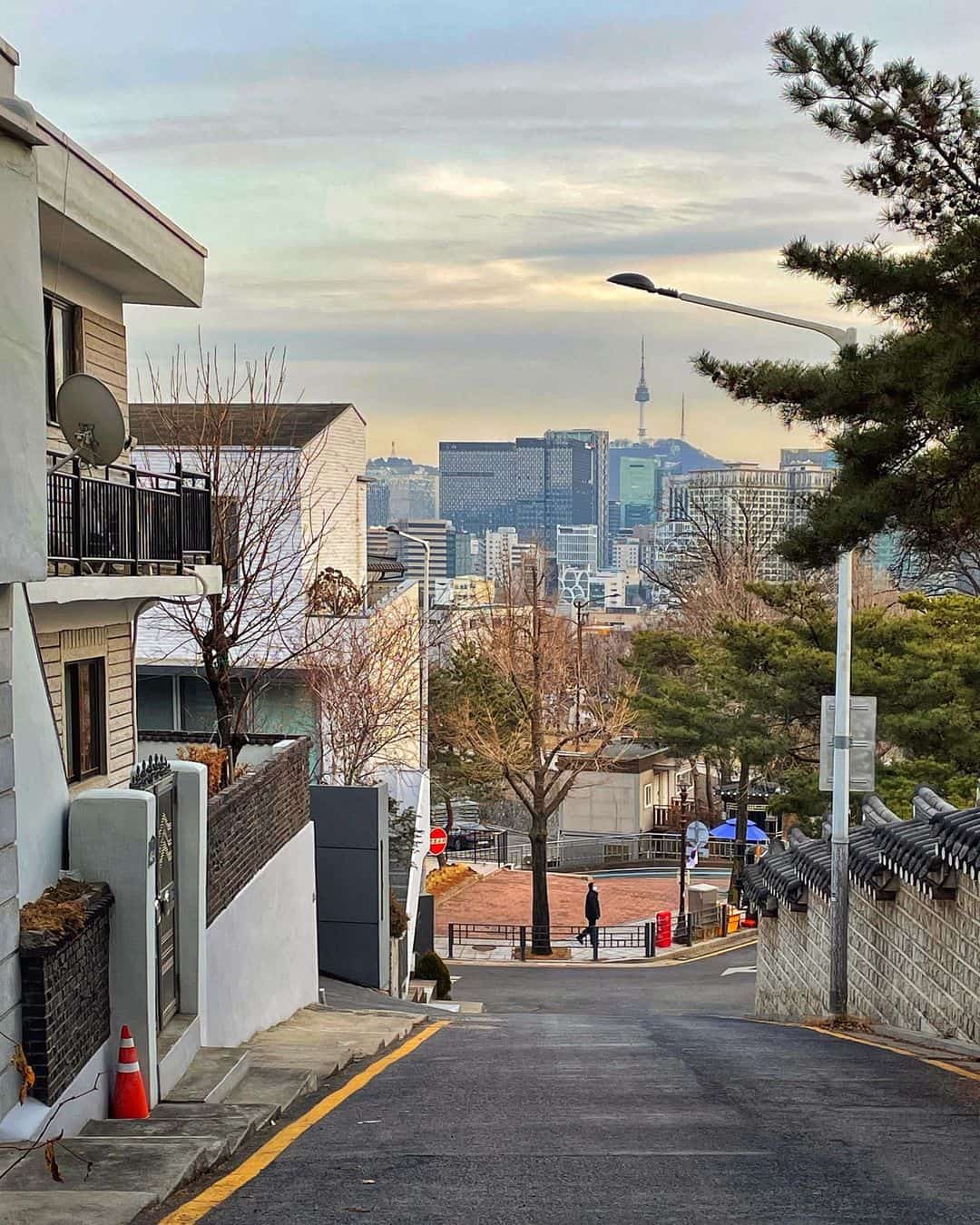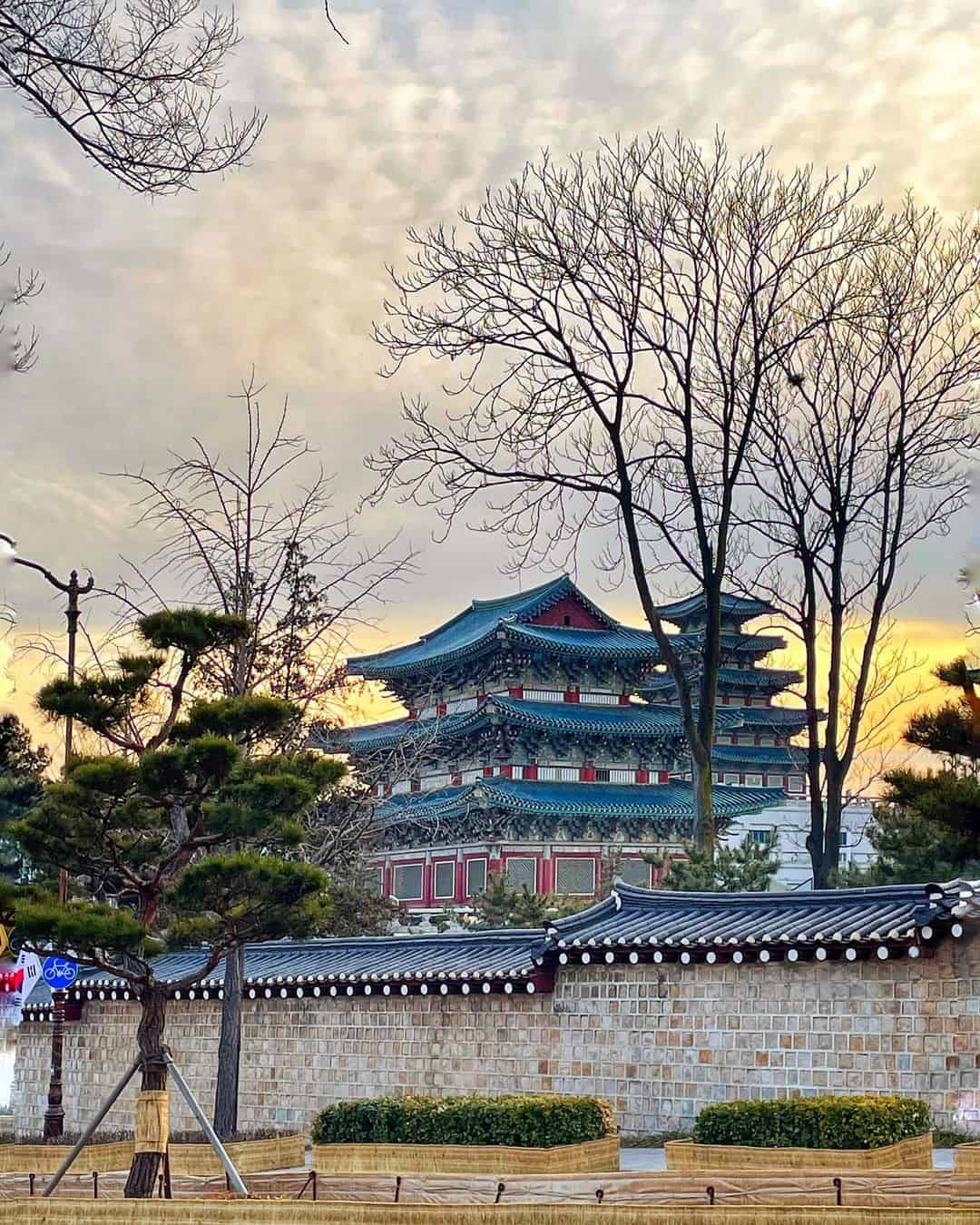Beauty Standards in South Korea: Ideals and Expectations [2024]
Beauty standards in South Korea differ significantly from beauty standards in the West. In general, this is a very image-conscious society, and people here tend to place more emphasis on the importance of being beautiful than you will find in other countries across the globe.
For instance, have you ever had to submit photographs of yourself alongside your resume when applying for a job position? No?
In Korea, you do, and the way that a person looks can have a disproportionate impact on the hiring process. Beauty standards in South Korea put a huge amount of pressure on women, in particular, to conform to them.
Beauty Standards in South Korea

Different beauty standards exist all over the world. This is particularly felt in South Korea, but it is certainly not the only country where this is the case.
There are big bucks to be made in the beauty industry, and in South Korea, this is a multi-billion dollar industry. It is continuing to grow every year too, as people from across the globe travel to Korea for beauty treatments, cosmetic surgery, and cosmetic dentistry.
As people in the West are gradually learning about Asian beauty regiments (notably the Korean ten-step skincare routine), exports of Korean beauty products are soaring too. In 2021, South Korea was the fifth largest exporter of cosmetics in the world, with its exports valued at a whopping $8.5 billion.
What is considered “beautiful” by South Korean standards?
In Korea, there are certain face shapes and physical attributes that are considered the most desirable. This tends to mean having fair skin, a slim figure, symmetrical eyebrows, a small, v-shaped face, and Western-style eyes.
The ideal standard of beauty is usually unattainable, as is often the case with beauty standards around the world. For instance, many Korean women aspire to have wide, larger eyes that are more reflective of Western women’s eyes.
To achieve this, they will often have double eyelid surgery. Young girls will often be gifted this surgery as a graduation gift by their parents.
The procedure, also known as Asian blepharoplasty, typically ranges from $5,000 to USD 10,000. It feels a shame that not only do young women aspire to have procedures that essentially attempt to hide aspects of Asian ethnicity, but that their parents often encourage and support their decision to do so.
Differences in beauty standards around the world

Still, as outside observers, can we say that Korean beauty standards are completely dissimilar to those found in our own countries? For instance, caucasian women in the UK are typically fair-skinned.
Yet, the idealized standard of beauty in England has become a Mediterranean-looking appearance. Women will spend hundreds of dollars investing in makeup, hair extensions, and false tans to look as though they hail from more exotic pastures.
This is controversial in itself—to say that these women want all the privileges of being white, yet aspire to be deemed exotic and ethnically ambiguous. It is also unrealistic to strive for a year-round tan when you live in drizzly Northern England or Edinburgh, where local temperatures rarely exceed 15 degrees Celsius.
Besides, have you ever noted that all of these beauty brands and companies setting trends are owned by the same few parent companies? So, the same businesses that are selling whitening and skin-bleaching products to women in South Korea, are also selling tanning solutions to Western women in the US and the UK.
In almost every country, the ideal standard of beauty is unrealistic and unrealistic. This might be more visible in Korean society, but Korea is not alone in this.
The importance of taking care of your skin
One notable difference in the approach towards beauty and self-care in Korea versus in other countries is that Koreans prioritize skincare. As far as many Koreans are concerned, beauty starts with taking care of your actual skin, rather than piling on makeup.
This is, arguably, a healthier approach. While Western women will often apply layers of concealer, foundation, contour, blusher, and highlighter, Korean women will focus on cleansing and moisturizing.
This is evident in the acclaim of the ten-step beauty routine. Korean women will also regularly visit their dermatologists, get facials at celebrity-approved spas such as Shangpree Seoul, and have treatments such as Fraxel laser.
Skin bleaching and the desire for a pale complexion

Generally speaking, a paler complexion is favored in Korea and much of East Asia. The background to this is quite controversial.
In the West, the idea of having a tan is synonymous with the idea of lazing on a tropical beach on a Greek island in the Sporades with a Greek coffee in hand. However, in Korea, being tanned is associated with looking like you have been out working in the heat doing manual labor.
As such, a strong SPF is crucial to any Korean skin regime. Many cosmetic items also contain SPF.
That in itself is healthy for you and your skin. However, what is not healthy, is when certain products contain whitening agents or specific ingredients that block melanin production.
If you go shopping in Seoul for beauty products in the streets of Myeongdong, Dongdaemun, Insadong, etc., it is important to check the specific ingredients before you make a purchase. Whitening agents are certainly not found in everything, but you generally want to avoid anything labeled as whitening or brightening.
K-Beauty Idols
Pop culture, influencers, and people that young women look up to differ across the globe. While Western women may aspire to look like someone like Margot Robbie or the Kardashians, Korean women look up to KPop stars.
Instead of Kim K, Korean women dream of looking like Jisoo from Black Pink or Nana from Twice. While Western women may strive for a sultry, exotic look, Korean women aspire to look sweet, young, and innocent.
In many ways, this is similar to the beauty culture in Japan. Indeed, the Japanese occupation had a massive impact on many aspects of Korean culture.
Cultural differences when it comes to physical appearances
In many countries, particularly in the west, it is considered rude if you comment on someone’s physical appearance, particularly if you comment negatively. In Korea that is not the case.
Koreans, in general, are often much blunter, and people usually do not intend to be rude with their comments. For instance, if you are teaching English in Korea and go to work without makeup on one day, you may be told that you look tired.
If you struggle with issues such as large pores, or you are developing a frown line between your brows, people may approach you and make suggestions. That would be considered almost consulting in some countries but in Korea, the perception is that the person is being helpful. Keep this in mind, and it will help you to keep from being upset or insulted.
Cosmetic surgery in South Korean culture
South Korea has the fifth highest number of plastic surgeons in the world. In 2019, it was estimated that there were around 2,500 plastic surgeons in operation in the country.
The notable difference between plastic surgery in South Korea and plastic surgery in other countries is its marketing, perception, and accessibility of it. For instance, there are plenty of plastic surgeons and people who invest in plastic surgery in Los Angeles, but it is generally just the affluent that opt to have work done.
In South Korea, access to surgery is not just restricted to the rich and famous. Investing in procedures to improve a person’s appearance and confidence is often considered important and people will save up and pay to have work done, regardless of how much they earn.
Various online sources cite that as many as one in three Korean women has had some form of cosmetic surgery. Studies show that the majority of women that have plastic surgery in Korea are aged between 20 and 40. As many as 46% of female college students are said to have procedures.
When you make your way around the Korean capital during your Seoul itinerary, you will see countless cosmetic surgery ads on the subway and around the city. Most plastic surgeons are concentrated around the neighbourhoods of Apjujeong, Cheongdam-dong, Sinsa-dong, and Gangnam.
In these areas, in particular, you will find that as you walk down the street, you pass by one plastic surgeon, after another, after another. So, if you pop into any coffee shops in Seoul in this area, you are quite likely to bump into someone covered in bandages, right after their rhinoplasty.
The beauty on the inside
In the west, we are brought up with the mantra that it is what is on the inside that counts. (Even if the media and ad campaigns tell us something different).
In South Korea, this really isn’t drilled into impressionable young women in the same way. When parents who believe that being beautiful is important, raise children and instill the same values into them, in a collectivist society, is it really a surprise that beauty standards in Korea are so high?
It is not uncommon to see very young children constantly put themselves down because they don’t think they are pretty enough. This can be quite upsetting and tough to see.
Plump lips
One of the beauty standards in South Korea that are shared with women in other countries across the globe is the desire for full, plump, heart-shaped lips. This is known locally as Tongtonghan Ibsul (통통한 입술).
If someone is not fortunate enough to be born with full lips, they may invest in lip fillers. This is a procedure that has to be done regularly to be maintained.
Ideal weight and body type in South Korea
As well as looking youthful and fresh-faced, Koreans aspire to look thin. Many women will follow strict diets that are very restrictive because they want to be a certain weight which, once again, is often unrealistic and unattainable.
Unfortunately, this often results in people starving themselves, consuming very few calories, developing eating disorders, and trying fat diets, weight loss teas, and other supplements. Western women may aspire to have curves in all the right places, and a large chest and rear but that is not the case in South Korea.
You will seldom see curvy Koreans. Brazilian buttlifts and breast augmentations are not the kinds of treatments women prioritise here.
Korean beauty standards for foreigners
As a foreigner either living in or travelling through South Korea, you may not feel the impact of beauty standards in South Korea to the same extent. However, it is definitely something that can start to impact your self-esteem and your mental health if you are around it for an extended period of time.
As a starting point, if you are in a country where you look notably different from everyone else anyway, that can make you somewhat self-conscious from the onset. This is particularly the case somewhere like South Korea where people are prone to staring.
If you are not ultra-thin, you may find that people make comments on your body shape and weight. It is important to feel comfortable and assured in your own skin and know that the desire to be ultra-thin is not healthy.
It is also worth noting that many stores do not stock plus-size clothing. Although this is something that is gradually improving over time, you may find it tricky to find clothes that fit if you are tall or if you are even slightly curvy.
A lot of places sell ¨one size only¨ clothing. This also often applies to shoes too!
South Korea is largely homogeneous and aside from the occasional American military person or ESL teacher, you seldom see western people pottering around Korean cities. For the most part, western beauty can be idealized (as seen in the desire to make eyes wider). So, you are more likely to receive compliments rather than insults here.
Korean male beauty standards
It is usually women around the globe that feel most of the brunt of unrealistic beauty standards. However, in Korea, there are Korean male beauty standards too!
Men in Korea take care of their skin and favour a fair, clear complexion just like women do. While Greek men, Mexican men, or other western/Latin men may aspire to look macho and gruff, Korean men strive to look more sensitive.
You could even go so far as to say that Korean men aim to look somewhat feminine. Men here will often also choose to invest in double eyelid surgery.
They may wear makeup to conceal any skin imperfections, and they will put a lot of thought and care into their hairstyles and clothing. Still, if you are a foreigner coming to Korea, this should not be something that concerns you.
Generally speaking, Korean women love western men. Your uniqueness and your differences are what make you attractive.
FAQs about Beauty Standards in South Korea
Do you still have any burning questions about beauty standards in South Korea or the history of Korean beauty standards? Hopefully, you will find the answers you are looking for below.
Are Korean beauty standards high?
Korean beauty standards are very high. Like in many countries, beauty expectations here are pretty unrealistic.
However, in Korea, you are more likely to find many people that struggle and strive to achieve them. Being beautiful is considered very important here.
What body shape is attractive in Korea?
A slim, athletic body shape is considered the most attractive in Korea. People here do not strive for curves.
Why is beauty so important in Korea?
The importance of being beautiful is deeply entrenched in Korean culture. People believe that being physically attractive is key to having a more successful life, meeting a better mate, career success, etc.
How do I get Korean beauty standards?
Certain physical traits are deemed important for adhering to Korean beauty standards. This includes having a small face, a pointed nose, wide eyes, plump lips, and a thin figure.
What is the ideal weight in Korea?
Women in Korea aim to weigh less than 50kg, or 7.87 stone. Keep in mind, that women here may often follow unhealthy diets and measures to meet Korean beauty standards and this may not be a healthy weight for your height
Final Thoughts
Have you visited South Korea or embarked on a Korea travel itinerary at all? What are your thoughts on beauty standards in South Korea?
How do they differ from what you are used to in your own country? Safe travels!
Annyeonghaseyo! Melissa xo

That is so sad. I thought North America was brutal but wow this is tough on those girls.
Thanks for sharing your experiences on a public forum. I’ve been researching S. Korea intermittently over the past year and a half to try gauge whether or not it is the place to start my ESL career. One of my chief concerns has been the cultural fixation on appearance.
I’m a 37 female with salt n’ pepper hair. I love my hair, and have never been interested in dying it to cover up grey. I often get compliments on my hair, even from beauticians. My face is youthful and somewhat doll-like. However, given that I’m already a bit outside of the ideal age range (according to some recruiter sites), it seems that it would be a complete waste of time to submit photographs for possible employment without having dyed my hair and plastered my face with cosmetics (did I mention that I don’t wear make-up, either). In your opinion, is it a necessity to be grey-less in order to be employable in ESL in Korea?
Thank you!
Diana
Hi Diana, thanks for your comment.
I don’t think that you will have any major problems in finding work in Korea. Before I came here, I had heard that there had been a decline in the requirement for English teachers in recent years but since arriving, the demand seems to be as big as ever. There are English academies on every corner and demand exceeds supply as far as I have seen so far.
As far as age and looks go, definitely do not change anything about yourself to get a position – any school or academy that turns you down on a shallow basis isn’t worthy of you as an employee and any hesitation about such matters doesn’t set a good tone for how the conditions could be when you arrive. When I was interviewing for positions, one school rejected me on the basis that I am 26 and the other teachers were 22 – 23 and the recruiter thought that I was too old (pssht!) At my current job, teachers range from early twenties to mid thirties.
I’ve also seen two instances of young teachers hired and then they realize that they do not want to commit to Korea and wind up leaving mid contract – I think the benefits of being an older applicant is the maturity that comes with it.
As westerners, we seem to be somewhat exempt from some of the pressures of adhering to a kind of “uniformed” way of looking. I say go ahead and don’t let that worry put you off. You will have a Skype interview with potential employers before you fly to Korea anyway so you will know what you could be letting yourself in for somewhat.
Please let me know if you have any questions 🙂
Kind Regards,
Melissa
I would love to know what they thought of how you looked as a westerner? I lived in Cambodia for several years and while plastic surgery is not a thing there (noone could afford it for a start!) the girls there constantly obsessed over their (and my) appearance. They all wanted ‘V’ chins and pointy noses, and most of all, white skin. It was pretty heartbreaking to see gorgeous girls desperate to look like another ethnicity. Did you get comments about different parts of your appearance? I used to get told I had a lovely chin! All the time! And my milk white skin would get stroked by strangers….pretty bizarre!
Ah that’s so sad to hear! Yeah there was a similar obsession with having white skin in Korea as well – I had to be careful what skincare products/sun creams I used because a lot of them contained whitening agents! Koreans find a lot of western traits attractive, especially the eye shape so I received a lot of comments on my eyes. Because people feel under pressure to look so perfect, a lot of people would be on crazy diets or starve themselves because it was considered attractive to be ultra thin so Westerners were also normally looked at as being “too fat” from their perspective. After a while, it made me feel a bit crazy being around it all the time!